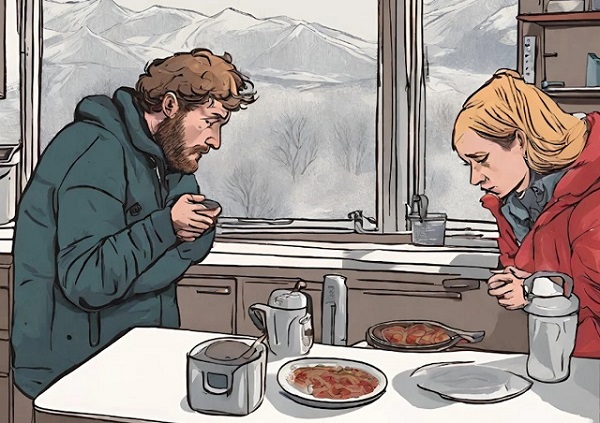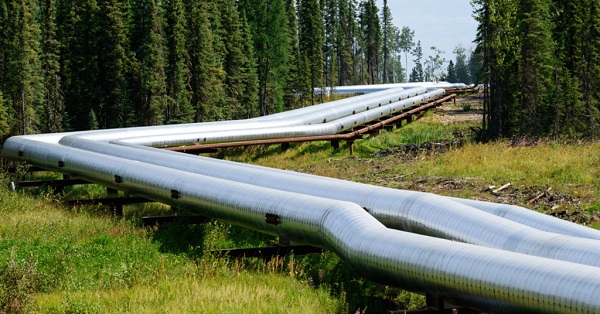Dan McTeague
The Carbon Tax is part of a bigger plan to change the way you live

From Canadians for Affordable Energy
 Written By Dan McTeague
Written By Dan McTeague
On April 1, the carbon tax is going to rise from $65 per tonne to $80 per tonne, and it seems Canadians are noticing this jump more than those of the past few years.
Back in 2019, the Trudeau government announced its 566% carbon tax hike, starting at $15 per tonne and increasing yearly until 2030, when it would reach a staggering $170 per tonne. It received some attention at the time, but there was not a great deal of pushback. Presumably the numbers were too abstract to catch people’s attention and 2030 seemed a long way off.
But today things are different. It helps that Conservative Party leader Pierre Poilievre has been campaigning aggressively against the tax, with rallies and petitions to ‘Axe the Tax.’
Even Liberal premiers, such as Andrew Furey of Newfoundland and Labrador, have been pleading with Justin Trudeau to hit pause on the increase. In fact, a total of seven premiers in the country have spoken out against the tax, asking for a delay in its increase.
That’s because they recognize the tax is hurting Canadians. The cost of everything has gone up. It’s gotten so tough for businesses that some restaurants have begun adding a ‘carbon tax’ line item to the final bill. And if Canadians think it is bad now, wait until 2030 when the carbon tax will more than double its current rate.
The other reason people are more aware of the increase is because, well, the tax is working. It’s doing what it was designed to do, though maybe not in the way you might think. The goal is not simply to reduce emissions — in fact emissions have gone up. The goal is actually more nefarious than that. Let me explain.
The carbon tax is one of the pillars of the United Nations, World Economic Forum (WEF) Net-Zero-by 2050 agenda. In order to achieve their objective, they need all of us to fundamentally alter the way we live our daily lives. They want us to drive less, fly less, eat less meat (and more bugs). The carbon tax is a punitive means of achieving this.
In fact, the Trudeau government’s own Healthy Climate, Healthy Economy plan articulates the logic of the tax quite well when it says, “The principle is straightforward: a carbon price establishes how much businesses and households need to pay for their pollution. The higher the price, the greater the incentive to pollute less, conserve energy and invest in low-carbon solutions.”
It’s worth noting that they’re using a pretty loose definition of ‘pollution’ here, because we all know that carbon dioxide is not a pollutant — it is a gas which makes life on earth possible.
Even so, their intention is clearly stated — they figure that, if the price of fuelling up your car, going on a vacation and heating your home gets high enough, you will have to drastically alter the way you live your day-to-day life.
You will stop flying, cut back on driving, use fewer appliances. And really, you’ll just get used to having less money, until — following the slippery slope to its conclusion — you will “own nothing and be happy,” in the words of that infamous WEF tweet.
Which is to say, the carbon tax is a punishment for participating in normal economic activity, for living a regular life. Of course, for the time being you can catch a break if you live in Atlantic Canada and heat your home with oil, but if you live in the prairies and heat your home with natural gas, sorry, but you’re out of luck. You aren’t in a Liberal riding, after all!
And even then, the Liberals and their activist friends are banking on Canadians reducing their carbon emissions in order to achieve their Net Zero 2050 target.
So good for Pierre Poilievre, Andrew Furey and the other premiers for pushing back on the carbon tax.
But let’s not forget that, as noxious as it is, it’s only one small part of the Liberals’ Net Zero agenda.
Eliminating the carbon tax is merely cutting off one head of the hydra. If Canada’s political leaders are really concerned with affordability, then they need to target the monster’s heart.
It’s time that we not only axe the tax, but we need to scrap Net Zero.
Dan McTeague is President of Canadians for Affordable Energy
Automotive
Canada’s EV gamble is starting to backfire

Things have only gone from bad to worse for the global Electric Vehicle industry. And that’s a problem for Canada, because successive Liberal governments have done everything in their power to hitch our cart to that horse.
Earlier this month, the Trump Administration rolled back more Biden-era regulations that effectively served as a back-door EV mandate in the United States. These rules mandated that all passenger cars be able to travel at least 65.1 miles (and for light trucks, 45.2 miles) per gallon of gasoline or diesel, by the year 2031. Since no Internal Combustion Engine (ICE) vehicle could realistically conform to those standards, that would have essentially boxed them out of the market.
Trump’s rolling them back was a fulfillment of his campaign promise to end the Biden Administration’s stealth EV mandates. But it was also a simple recognition of the reality that EVs can’t compete on their own merits.
For proof of that, look no further than our second bit of bad news for EVs: Ford Motor Company has just announced a massive $19.5 billion write-down, almost entirely linked to its aggressive push into EVs. They’ve lost $13 billion on EVs in the past two years alone.
The company invested tens of billions on these go-carts, and lost their shirt when it turned out the market for them was miniscule.
Ford’s EV division president Andrew Frick explained, “Ford is following the customer. We are looking at the market as it is today, not just as everyone predicted it to be five years ago.”
Of course, five years ago, the market was assuming that government subsidies-plus-mandates would create a market for EVs at scale, which hasn’t happened.
As to what this portends for the market, the Wall Street Journal argued, “The company’s pivot from all-electric vehicles is a fresh sign that America’s roadways – after a push to remake them – will continue to look in the near future much like they do today, with a large number of gas-powered cars and trucks and growing use of hybrids.”
And that’s not just true in the U.S. Across the Atlantic, reports suggest the European Union is preparing to delay their own EV mandates to 2040. And the U.K.’s Labour government is considering postponing their own 2030 ICE vehicle ban to align with any EU change in policy.
It’s looking like fewer people around the world will be forced by their governments to buy EVs. Which means that fewer people will be buying EVs.
Now, that is a headache for Canada. Our leaders, at both the federal and provincial levels, have bet big on the success of EVs, investing billions in taxpayer dollars in the hopes of making Canada a major player in the global EV supply chain.
To bolster those investments, Ottawa introduced its Electric Vehicle mandate, requiring 100 per cent of new light-duty vehicle sales to be electric by 2035. This, despite the fact that EVs remain significantly more expensive than gas-and-diesel driven vehicles, they’re poorly suited to Canada’s vast distances and cold climate, and our charging infrastructure is wholly inadequate for a total transition to EVs.
But even if these things weren’t true, there still aren’t enough of us to make the government’s investment make sense. Their entire strategy depends on exporting to foreign markets that are rapidly cooling on EVs.
Collapsing demand south of the border – where the vast majority of the autos we build are sent – means that Canadian EVs will be left without buyers. And postponed (perhaps eventually canceled) mandates in Europe mean that we will be left without a fallback market.
Canadian industry voices are growing louder in their concern. Meanwhile, plants are already idling, scaling back production, or even closing, leaving workers out in the cold.
As GM Canada’s president, Kristian Aquilina, said when announcing her company’s cancellation of the BrightDrop Electric delivery van, “Quite simply, we just have not seen demand for these vehicles climb to the levels that we initially anticipated…. It’s simply a demand and a market-driven response.”
Prime Minister Mark Carney, while sharing much of the same environmental outlook as his predecessor, has already been compelled by economic realities to make a small adjustment – delaying the enforcement of the 2026 EV sales quotas by one year.
But a one-year pause doesn’t solve the problem. It kicks the can down the road.
Mr. Carney must now make a choice. He can double down on this troubled policy, continuing to throw good money after bad, endangering a lot of jobs in our automotive sector, while making transportation more expensive and less reliable for Canadians. Or he can change course: scrap the mandates, end the subsidies, and start putting people and prosperity ahead of ideology.
Here’s hoping he chooses the latter.
The writing is on the wall. Around the world, the forced transition to EVs is crashing into economic reality. If Canada doesn’t wake up soon, we’ll be left holding the bag.
Dan McTeague
Will this deal actually build a pipeline in Canada?

By Dan McTeague
Will Carney’s new pipeline deal actually help get a pipeline built in Canada? As we said before, the devil is in the details.
While the establishment and mainstream media cheer on the new pipeline agreement, there are specific details you need to be aware of.
Dan McTeague explains in his latest video.
-

 Energy2 days ago
Energy2 days agoThe U.S. Just Removed a Dictator and Canada is Collateral Damage
-

 Daily Caller1 day ago
Daily Caller1 day agoScathing Indictment Claims Nicolás Maduro Orchestrated Drug-Fueled ‘Culture Of Corruption’ Which Plagued Entire Region
-

 International2 days ago
International2 days agoUS Justice Department Accusing Maduro’s Inner Circle of a Narco-State Conspiracy
-

 Haultain Research2 days ago
Haultain Research2 days agoTrying to Defend Maduro’s Legitimacy
-

 Opinion1 day ago
Opinion1 day agoHell freezes over, CTV’s fabrication of fake news and our 2026 forecast is still searching for sunshine
-

 Daily Caller1 day ago
Daily Caller1 day agoTrump Says US Going To Run Venezuela After Nabbing Maduro
-

 Business1 day ago
Business1 day agoVirtue-signalling devotion to reconciliation will not end well
-

 COVID-191 day ago
COVID-191 day agoA new study proves, yet again, that the mRNA Covid jabs should NEVER have been approved for young people.



